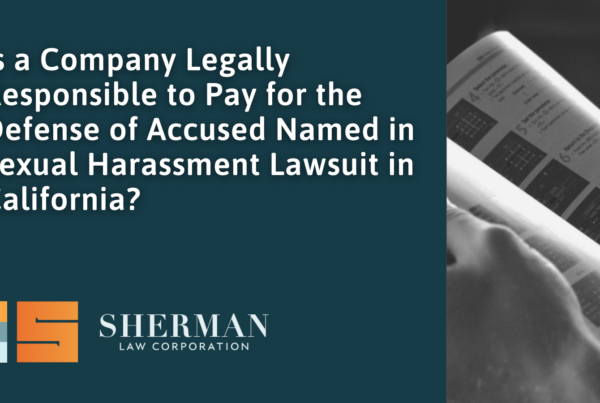
With a surge in employment law litigation, it only makes sense for employers to consider purchasing insurance to cover the defense and indemnification of such claims. Employment Practices Liability Insurance, often referred to as EPLI, has been around for decades. In the mid-to late 90’s early 2000’s, EPLI was so expensive that only the big corporations could afford to purchase it. Like many things in life, EPLI expanded its market, reduced the costs to purchase it, so many more employers now purchase EPLI. Indeed, companies that conduct business with federal and local governments are required to maintain EPLI as a condition of their contracts.
While insurance brokers are keen on selling EPLI, it is critically important that employers understand the hidden truths.
- EPLI insurance coverage does not usually cover wage and hour claims, class action or lawsuits under the Private Attorney General’s Act (class-action like claims for violations of California Labor Code, which generally include wage and hour claims).
- EPLI insurance coverage does not cover any intentional acts, which include but are not limited to, intentional infliction of emotional distress and punitive damages.
- EPLI insurance policies typically require employers to use law firms retained by the insurance company. Even if the employer has used their employment counsel for years, and is willing to pay their employment counsel the difference in rates – which has happened to me many times – the insurance company will refuse to approve and appoint the employer’s employment counsel to represent them on the case.
- The employer with EPLI loses control over the litigation and most importantly, settlement of the lawsuit. Once the insurance company agrees to cover the liability of a lawsuit, it can dictate the manner in which it is litigated and even whether, and for how much, to settle the case.
- There is an inherent conflict of interest between the EPLI company and EPLI’s appointed counsel. EPLI’s appointed counsel has a duty of loyalty to aggressively defend a lawsuit, however, in reality, the EPLI appointed counsel is paid by the EPLI carrier. If too much money is spent defending the case above the covered employer’s deductible, the EPLI carrier will not use their law firm again. Therefore, the EPLI appointed counsel will often put the needs of their law firm and EPLI carrier above the employer client by seeking to settle truly frivolous cases at the outset of litigation.
- EPLI inflates the value of all cases, especially frivolous ones. The employer must reveal all insurance coverage in response to form interrogatories which then changes the dynamics as the plaintiff employee’s counsel deems the policy as the gold mine for which they are entitled to recover as EPLI carriers will seek a settlement prior to trial to minimize the costs of defense to the EPLI carrier. Absent EPLI, an employer’s assets are at risk, but if the employee wins and a judgment cannot be collected, the employer has a better chance of resolving the case for pennies on the dollars.
- As soon as one lawsuit is filed — regardless of its merit — the EPLI carrier will drop the covered employer and it will likely be more expensive to purchase EPLI through another carrier.
If an employer is either required to, or still desires to purchase EPLI, or is in the process of renewal, we recommend the following:
- Inform your insurance broker that you require an express provision in the EPLI policy that states that you have choice of counsel, for which approval will not be unreasonably withheld. The litigation rates for partners, associates and paralegals is agreed upon up front, with the client agreeing to pay any difference in rates.
- Insist that the policy requires approval by the client for settlement of any and all claims, with a provision that spells out what will occur if the client rejects any settlement offers.




